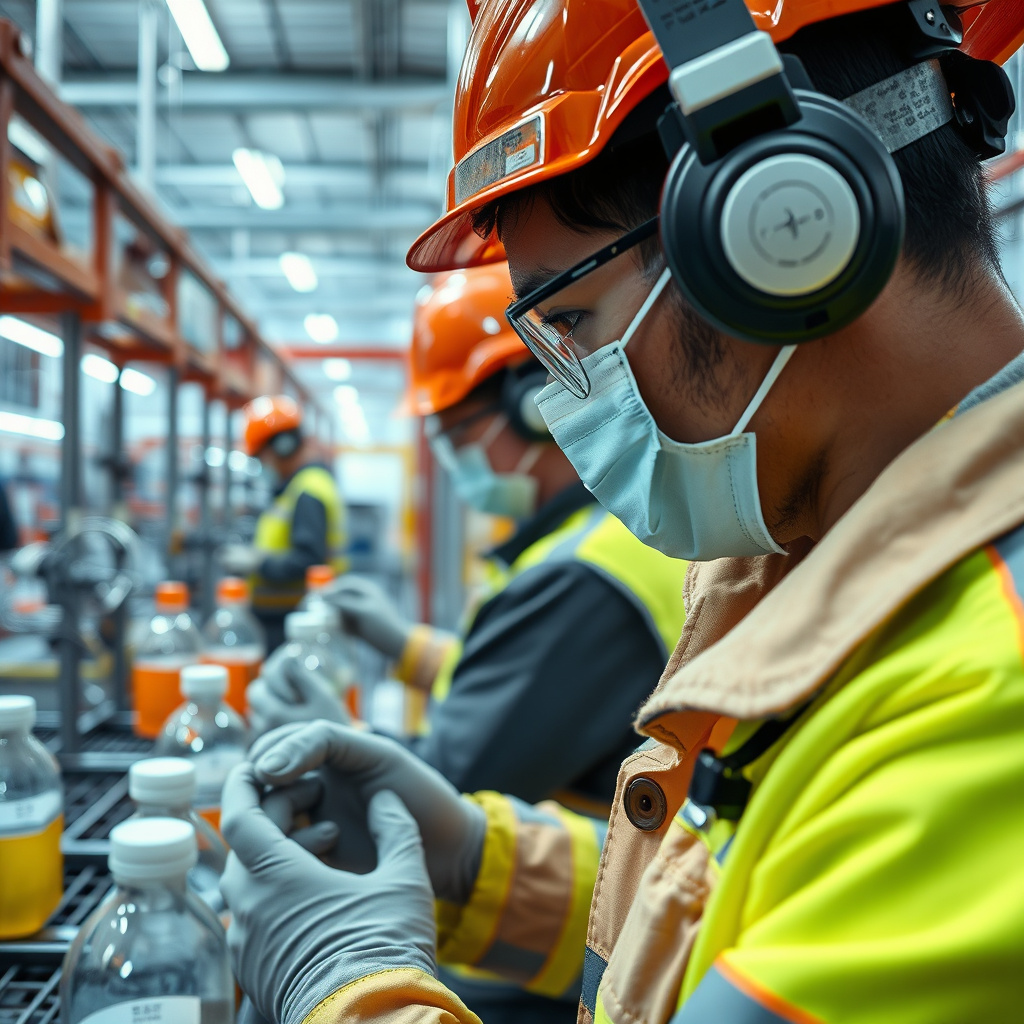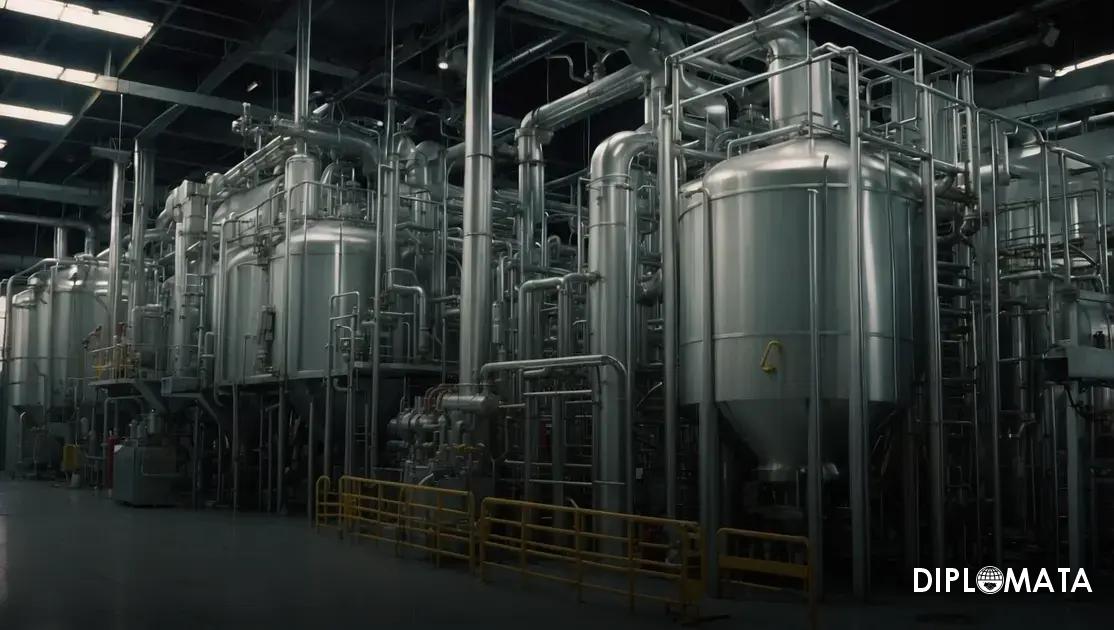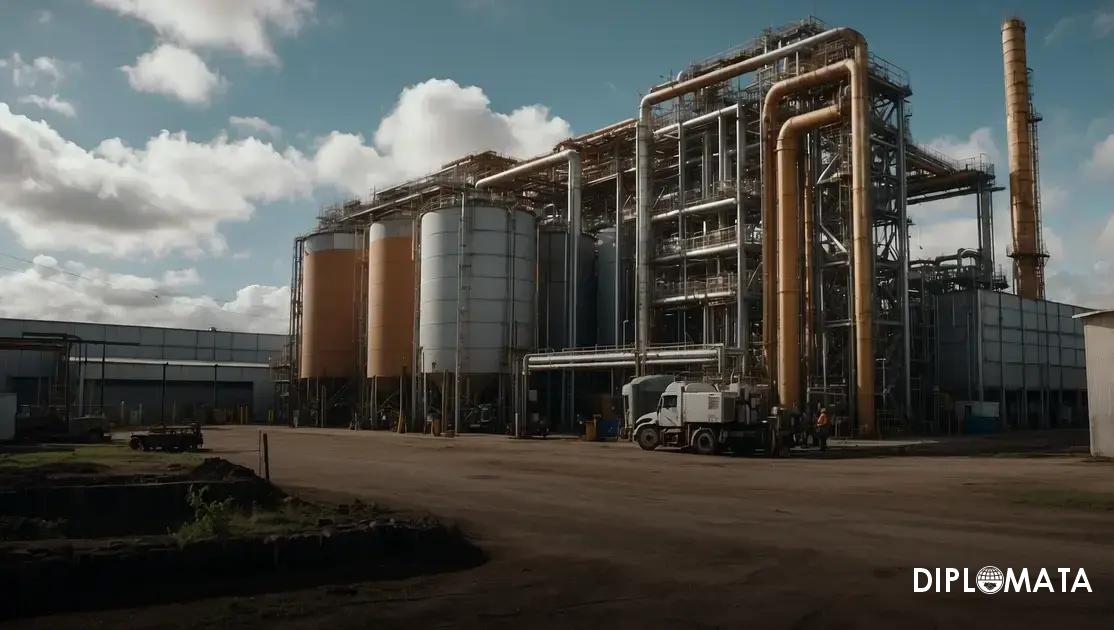How to manage risks in chemical logistics? This involves identifying potential hazards, assessing their impact, and implementing strategies to mitigate them effectively.
How to manage risks in chemical logistics? This is a critical question for companies looking to optimize their supply chains and ensure safety. In this post, you will discover essential strategies to identify and mitigate risks associated with transporting chemicals. From regulatory compliance to choosing the right suppliers, we will cover the vital aspects that can protect your business and enhance efficiency. By the end of this article, you will be equipped with actionable insights to safeguard your operations and make informed decisions in chemical logistics.
Understanding these risks is not just about compliance; it’s about maintaining a trustworthy supply chain. Join us as we delve into effective management techniques that can make a significant difference in your logistics operations.

In the ever-evolving landscape of global trade, managing risks in chemical logistics has become a critical concern for companies across various industries. The transportation of hazardous materials presents unique challenges that require a robust risk management framework. This article aims to provide you with a comprehensive guide on how to manage risks in chemical logistics, ensuring safety, compliance, and operational efficiency.
Understanding the Basics of Chemical Logistics Risk Management
At its core, risk management in chemical logistics involves identifying, assessing, and mitigating risks associated with the transportation of chemicals. These risks can range from environmental hazards and regulatory non-compliance to accidents during transit. Understanding these fundamental concepts is crucial for any business involved in the chemical supply chain. By establishing a solid risk management framework, companies can navigate the complexities of chemical logistics more effectively.
The Significance of Effective Risk Management in Chemical Logistics
Implementing effective risk management strategies in chemical logistics offers numerous benefits. Firstly, it enhances safety for employees and the environment by minimizing the chances of spills and accidents. Secondly, it ensures compliance with a myriad of local and international regulations, protecting companies from hefty fines and legal repercussions. Moreover, a strong risk management approach can safeguard a company’s reputation, ultimately leading to improved customer trust and potentially lowering costs associated with accidents.
Key Criteria for Selecting a Chemical Logistics Provider
Choosing the right logistics provider is paramount in managing risks effectively. Consider the following criteria when evaluating potential partners:
- Safety Records: Investigate the provider’s history of safety incidents and their response strategies.
- Regulatory Compliance: Ensure they adhere to all relevant regulations and standards in chemical transportation.
- Experience with Hazardous Materials: Look for providers with a proven track record in handling chemicals like AMINAS.
Step-by-Step Process for Managing Risks in Chemical Logistics
To manage risks effectively, follow this step-by-step guide:
- Risk Assessment: Identify potential risks associated with the transportation of chemicals.
- Planning: Develop a comprehensive risk management plan that outlines safety measures and protocols.
- Implementation: Put your risk management strategies into action, ensuring all personnel are trained and informed.
- Continuous Monitoring: Regularly review and update your risk management practices to adapt to new challenges.
Advanced Techniques and Best Practices for Risk Mitigation
Industry leaders utilize several advanced strategies to enhance their risk management efforts:
- Innovative Technologies: Incorporate tracking systems and automated alerts to monitor shipments in real-time.
- Training Programs: Invest in regular training for employees on safety procedures and emergency response.
- Proactive Approaches: Establish contingency plans to address potential emergencies before they occur.
Common Pitfalls in Chemical Logistics Risk Management and How to Avoid Them
Despite the best efforts, companies often fall into traps when managing risks in chemical logistics. Here are some common pitfalls and suggestions on how to avoid them:
- Neglecting Employee Training: Ensure ongoing training to keep staff informed about safety protocols.
- Ignoring Regulatory Changes: Stay updated with local and international regulations affecting chemical logistics.
- Overlooking Communication: Foster open communication between all stakeholders involved in the logistics process.
Conclusion
Managing risks in chemical logistics is a multifaceted challenge that requires a proactive approach. By understanding the fundamental concepts, implementing effective strategies, and avoiding common pitfalls, companies can safeguard their operations and reputation. As experts in the chemical industry with over 20 years of experience, we at DIPLOMATA COMERCIAL are committed to providing AMINAS suppliers with reliable logistics solutions that prioritize safety and efficiency.
Our Expertise in Chemical Logistics
With an in-depth understanding of the chemical market, our content reflects profound expertise in managing risks associated with chemical logistics. With over 20 years of experience, we specialize in being a leading manufacturer of glycerin, operating our own facilities, and delivering exceptional management and structure. This positions us as a trustworthy source for guidance on how to manage risks in chemical logistics.
Our Location: Av. Ipanema N° 165 – Empresarial 18 do Forte, Barueri – SP. CEP: 06472-002
Frequently Asked Questions
What are the main risks in chemical logistics?
The main risks in chemical logistics include spills, leaks, and exposure to hazardous materials. Other risks involve transportation accidents, regulatory non-compliance, and inadequate storage conditions. Managing these risks is crucial to ensure safety, protect the environment, and comply with legal requirements.
How can companies ensure compliance in chemical logistics?
Companies can ensure compliance by staying updated with regulations, conducting regular audits, and training staff on safety protocols. Implementing a robust risk management system and maintaining proper documentation also help in adhering to legal requirements and industry standards.
What role does training play in managing chemical logistics risks?
Training is essential in managing chemical logistics risks as it equips employees with the knowledge to handle hazardous materials safely. Regular training sessions on emergency response, proper handling techniques, and regulatory requirements can significantly reduce the likelihood of accidents and spills.
What are best practices for transporting hazardous chemicals?
Best practices for transporting hazardous chemicals include using specialized containers, ensuring proper labeling, and selecting qualified carriers. Additionally, conducting risk assessments, implementing safety protocols, and maintaining communication with all parties involved can enhance safety during transportation.
How can technology help in managing chemical logistics risks?
Technology can help manage chemical logistics risks through real-time tracking systems, automated compliance reporting, and predictive analytics. Using software to monitor inventory levels and environmental conditions can also enhance safety and efficiency, helping to prevent accidents and ensure regulatory compliance.





